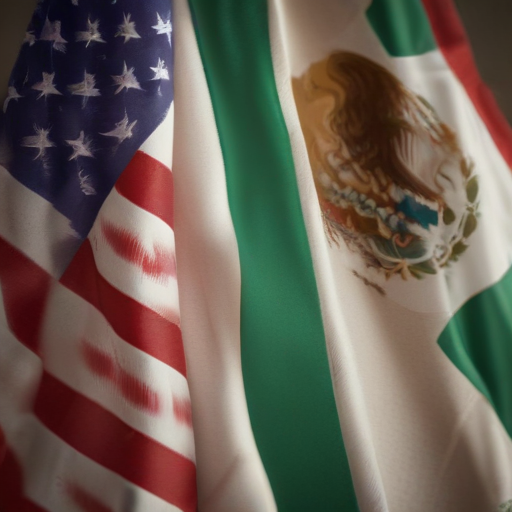The United States and Mexico have come to an agreement to postpone a controversial 25% tariff on Mexican imports for one month. This decision was reached as part of efforts to enhance border security, particularly in combating drug trafficking, including fentanyl smuggling into the U.S. Mexican President Claudia Sheinbaum announced that 10,000 National Guard members would be deployed to bolster security at the northern border.
President Donald Trump, who has been vocal about the need for stricter border controls, noted on social media that negotiations regarding border security will continue, led by key cabinet members including Secretary of State Marco Rubio and Treasury Secretary Scott Bessent.
This agreement emerged following Trump’s executive order, which sought to impose levies on nearly all imports from Canada and Mexico, originally set to take effect on Tuesday. The proposed tariffs had raised concerns that they would increase costs for American consumers and negatively impact both economies. Business groups and economists warned that such tariffs could lead to significant price hikes and an economic downturn.
During the past days, tensions heightened as Canada also announced retaliatory tariffs on U.S. goods, a move that could further strain trade relations. Trump suggested that the U.S. would not be overly reliant on Canadian imports, stating, “We don’t need them for agricultural products, because we have all the agriculture we need.” In response, Canadian Prime Minister Justin Trudeau vowed to impose a 25% tariff on approximately $155 billion worth of U.S. goods.
While officials characterized the tariffs as a measure against drug smuggling and immigration, Trump indicated that the overarching goal could also involve addressing trade deficits. He has recently been quoted suggesting that Canada should be absorbed into the U.S. as the “51st state” to eliminate tariffs and reduce subsidies.
With nearly all of the fentanyl seized so far in 2024 coming from the southern border, the administration emphasizes the urgency of addressing both drug trafficking and immigration concerns. Sheinbaum expressed hope that the month-long pause on tariffs would yield tangible results in negotiations surrounding these issues.
As both nations aim to navigate this complex situation, there remains optimism that cooperative efforts can lead to fair solutions that enhance border security while promoting economic stability in both countries.
